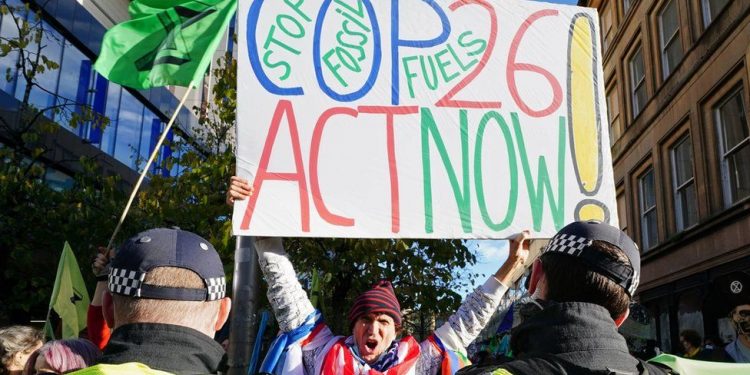Glasgow: After a week of negotiations, numerous of the stickiest issues in climate talks remain unresolved. As a result, teams of cabinet ministers from different countries are being sent to move things along. Briefing the United Nations Conference of Parties, or COP26, on the first week’s progress, COP president Alok Sharma had to correct himself, noting that ‘some’ issues had been settled, rather than ‘many’.
Numerous developing nations were pessimistic. They called progress ‘disappointing’. They said announcements were high in quantity but worried that they were low in quantity.
No deals have been made yet on the three main goals of the UN — pledges to cut emissions in half by 2030 to keep the Paris climate deal’s 1.5 degree Celsius temperature rise goal alive; the need for USD 100 billion annually in financial help from rich countries to poor ones; and the idea that half of that money go on adapting to global warming’s worst effects. Several other issues, including trading carbon and transparency, also weren’t solved yet.
And on the issue of more frequent updates of countries’ emission-cutting goals – something poorer nations seek — negotiators listed nine different time options for future negotiators to choose from.
Sharma named teams of two ministers — one from a rich country, one from a poor — for each issue to oversee negotiations on each topic, a technique used in the past.
Not fixing the financial pledge problem shows rich nations’ pledges are ‘an empty commitment’, and without fixing that these climate talks cannot be successful, representatives from several countries, including Guinea, said.
“There is a history of broken promises and unfulfilled commitments by developed countries,” Diego Pacheco Balanza of Bolivia told the conference.
Saudi Arabia, often accused of trying to weaken emission-cutting efforts, asked Sharma to end the conference at 6.00pm Friday no matter where they are in negotiations, even if they aren’t done.







































